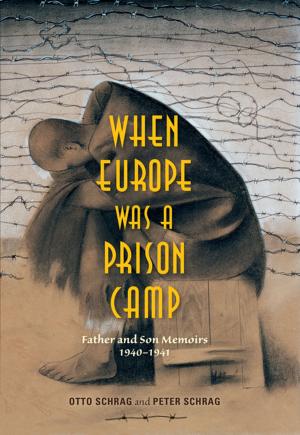Blood Libel in Late Imperial Russia
The Ritual Murder Trial of Mendel Beilis
Nonfiction, History, Asian, Russia, Jewish| Author: | Robert Weinberg | ISBN: | 9780253011145 |
| Publisher: | Indiana University Press | Publication: | November 20, 2013 |
| Imprint: | Indiana University Press | Language: | English |
| Author: | Robert Weinberg |
| ISBN: | 9780253011145 |
| Publisher: | Indiana University Press |
| Publication: | November 20, 2013 |
| Imprint: | Indiana University Press |
| Language: | English |
On Sunday, March 20, 1911, children playing in a cave near Kiev made a gruesome discovery: the blood-soaked body of a partially clad boy. After right-wing groups asserted that the killing was a ritual murder, the police, with no direct evidence, arrested Menachem Mendel Beilis, a 39-year-old Jewish manager at a factory near the site of the crime. Beilis's trial in 1913 quickly became an international cause célèbre. The jury ultimately acquitted Beilis but held that the crime had the hallmarks of a ritual murder. Robert Weinberg's account of the Beilis Affair explores the reasons why the tsarist government framed Beilis, shedding light on the excesses of antisemitism in late Imperial Russia. Primary documents culled from the trial transcript, newspaper articles, Beilis's memoirs, and archival sources, many appearing in English for the first time, bring readers face to face with this notorious trial.
On Sunday, March 20, 1911, children playing in a cave near Kiev made a gruesome discovery: the blood-soaked body of a partially clad boy. After right-wing groups asserted that the killing was a ritual murder, the police, with no direct evidence, arrested Menachem Mendel Beilis, a 39-year-old Jewish manager at a factory near the site of the crime. Beilis's trial in 1913 quickly became an international cause célèbre. The jury ultimately acquitted Beilis but held that the crime had the hallmarks of a ritual murder. Robert Weinberg's account of the Beilis Affair explores the reasons why the tsarist government framed Beilis, shedding light on the excesses of antisemitism in late Imperial Russia. Primary documents culled from the trial transcript, newspaper articles, Beilis's memoirs, and archival sources, many appearing in English for the first time, bring readers face to face with this notorious trial.















